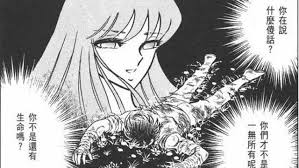"根據統計,60%的運動傷害都是由過度訓練引起的"在閱讀這篇遊騎兵隊物理治療師的文章時候,這一句話吸引了我的目光。在臨床上,治療師常常是負責後段的治療受傷疼痛,而預防受傷這一塊,尤其是在台灣,治療師很少有著力點,並且能夠了解運動產業的治療師也還不夠多。但如果,能有一天,我們能在預防運動選手受傷這一塊做得更好的話,或許台灣能產生更多的國際級運動明星。
而在預防運動傷害方面,這幾年"過度訓練"的概念非常的流行。簡單說,對運動選手來說,好好休息可能也是訓練的重要一環,以往的過度超越人體極限的精神論訓練方式,或許也有著極大的受傷風險。如果選手出現過度訓練的症候群的話,不但身體體能會有長期性的下降,容易受傷,心理狀態也會變得比較消極跟沮喪。這些對於運動表現都會有著極大的負面影響。
當然,對於基層的小選手來說,偷懶不練球的也很多,要怎麼拿捏訓練跟休息的分寸,就要仰賴教練的專業以及智慧了。而本篇文章是由德州遊騎兵隊的Jose Vazquez 撰寫,內容有明確的定義過度訓練的症狀,還有要怎樣避免過度訓練的發生。分享給大家
------------------------------------------------------------------------------
Research indicates that there is a significant risk of overtraining among HS athletes in all sports if proper guidelines are not established and followed. Overtraining occurs over three stages: 1) excessive training; 2) overreaching; and 3) overtraining.
目前有許多研究顯示,如果沒有制定一個標準的準則,高中的運動選手是很容易出現過度訓練的情況的。過度訓練通常有三個階段: 訓練疲勞,超量訓練,過度訓練
- Excessive training occurs when athletes are subjected to an unnecessary high intensity or volume of training. We see this in the weight room when training loads are too high or too many reps are performed in a workout. We also see it when players are asked to run too far, run too many sprints and/or run too fast with inadequate recovery between reps and sets in a training session. It also occurs after extra-inning games, double headers or when there is a sudden increase in the number of games played per week or over a weekend. This is a temporary condition that lasts a few days and is reversed with adequate rest and proper nutrition. It is not a direct cause of overtraining, but can be the first step in its development.
訓練疲勞(Excessive training)通常都會發生在運動員被要求進行了無意義的高強度訓練或是訓練量過多之後。例如在健身房做了太強的重量或是做了太多的次數,或選手被要求做了太長距離或太快的衝刺訓練,並且組間沒有得到足夠的休息。球員也很在一些情況發生超量訓練的情況,譬如延長賽,雙重賽,或是突然被增加的密集賽程。
而訓練疲勞只是一個暫時的疲勞情況,大多會在足夠的休息以及營養之後得到回復,並不會直接造成過度訓練的症狀,但如果不加注意,可能是過度訓練的第一個階段。
- Overreaching is a brief period (1-2 weeks) of heavy overload without adequate recovery. The combination of high loads and lack of rest exceeds the ability of the athlete to adapt. This is the result of subjecting players to excessive training too often and too long. Performance decreases, but it is relatively short-term, lasting several days to several weeks. It takes more time to recovery from overreaching than from excessive training. This is the second stage of overtraining caused by chronic excessive training and inadequate rest.
超量訓練(overreaching)會在1~2周的高強度訓練並且沒有足夠的休息之後出現。當訓練強度跟休息不足超過選手的極限之後,選手就會出現更容易會有訓練的疲勞以及需要更長時間回復。同時也會有短期的運動表現下降(幾天到幾周不等)
當有超量訓練的情況出現之後,選手可能需要更多的休息時間才能回到正常的身體狀況,同時間他也是過度訓練的第二個階段。
- Overtraining is the point at which an athlete starts to experience negative physiological changes (fatigue, irritability, lack of concentration, chronic joint or muscle pain, more or less sleep than usual, loss of appetite and weight, increased injuries, illness or infections) and chronic performance decrements. These can last weeks, months or longer and require longer recovery and regeneration periods.
According to the American Academy of Pediatrics, approximately 60% of injuries among athletes in all sports is the result of overtraining. Recommendations on how to limit or prevent overtraining include the following:
根據美國兒科學會的統計,大約有60%的運動傷害,都是因為過度訓練造成的。而遵照以下的幾個建議,則可以減少過度訓練機率,達到預防過度訓練的效果。
- Train for strength three times per week with alternate days of heavy, light and moderate loads. Adaptation occurs during recovery and it takes longer to recover from higher intensity loads. Constantly working with high resistance prevents adequate recovery, can cause CNS fatigue and increase the risk of muscle, joint and growth plate injury. Growth plates do not fully close in some males until ages 16-18.
重量訓練建議一周訓練三次並且應該交替強,中等,輕的訓練強度。在高強度的訓練之後,應該讓拉長休息的時間讓身體可以適應訓練強度。如果長時間的高強度訓練可能會造成神經控制疲勞,而增加肌肉關節甚至生長板受傷的風險。(生長板是在青少年時期尚未完全成熟癒合的組織,大多會在16~18歲才會成熟癒合)
- If you use a 4-day split (MW and TTh), make the first and fourth (M and Th) workouts heavy and the other two moderate or light. This will avoid have two consecutive heavy workouts. You can also lift on MW and work on running mechanics, acceleration, speed, agility, body weight, PWC or plyometrics on T and Th. This will provide two heavy and two moderate to light days to help ensure adequate recovery.
如果你是採用四天一周期的訓練計畫,那可以把高強度的訓練擺在第一天以及第四天,而第二跟第三天則可以進行中強度或是輕強度的訓練。或者你可以在第一,三天做重量訓練,而第二,四天做敏捷,速度,爆發力,跳躍訓練等,這樣你就可以確保身體有足夠的休息時間。
- Balance throwing, hitting and running intensity with intensity in the weight room. Players get better in practice, not in the weight room. Don’t schedule high intensity training sessions on the same day as high intensity skill sessions.
平均分配重訓以及投擲打擊跑步等課表,選手還是需要技術訓練才能有運動表現的進步,所以不要把高強度的重訓跟高強度的技術課程擺在同一天。
- Schedule lighter workout days before competition. The mechanics of pitching, hitting, throwing, fielding, running, etc. change when players are fatigued which decreases performance and increases the risk of injury.
在比賽的前幾天,應該要排比較輕度的課表。疲倦的選手可能會造成投球,打擊等機制的改變,造成運動表現不佳甚至受傷。
- Use a periodization model in which the goals of training vary to meet the needs of the training year. Vary the exercises, intensity, frequency, volume and rest time to accomplish the goals of each training phase. One program will not accomplish all goals.
交替使用不同的週期化訓練,讓選手能有長期性的身體狀況改善。單一類別的訓練計畫是無法讓選手得到足夠的進步的。
- Avoid scheduling intense acceleration, speed, agility, plyometric or work capacity days on the same day or the day after high-intensity weight training sessions. Acceleration, speed, agility and plyometrics have a high CNS demand. Performing them in a fatigued state will not produce optimal results. Players will get tired, but not better.
高強度的爆發力訓練,衝刺,敏捷訓練不應該擺在同一天訓練,也應避免在高強度的重量訓練後一天訓練。高強度的爆發訓練或是敏捷訓練,需要中樞神經系統大量的參與,所以如果在疲勞的狀態進行訓練,就可能會造成訓練效果不佳。選手可能會覺得很操,但不會進步。
- The American Academy of Pediatrics and American Orthopedic Association recommend that players engage in training, skill work and competitions no more than 18 hours per week. If a player is participating in fall baseball and playing two games on Saturday and Sunday, this takes up 8 of the recommended 18 hours leaving 10 hours per week for conditioning and skill work. This is, of course, assuming that players don’t have fall team practice sessions and/or work with hitting, fielding or pitching coaches.
美國兒科學會和美國骨科醫學會建議,一周的技術訓練以及比賽時間的總和最好不要超過18小時。例如球隊在周末有兩天連續的賽程,那或許兩場比賽會花費約八個小時。那這周的技術訓練(打擊訓練,守備練習,牛棚訓練等)+體能訓練,最好就不要超過10小時為佳。
- Monitor how much work each player is doing outside of school training and adjust training loads whenever possible.
教練最好也要知道選手在校外是否也有額外的訓練(工作室,或是健身房等等),並且針對校外的訓練調整選手在校內的訓練課表。
- Administer a daily wellness questionnaire to help determine the sleep, nutrition and stress level of each player to help when planning individual and team workouts. The school IT department should be able to help students and coaches access a wellness program via i-phone to speed up the process.
教練最好要能了解選手每天的睡眠,營養,壓力狀況,並且依照情況去調整訓練課表。
- Schedule talks and send emails to parents. Discuss overtraining and the importance of rest, recovery and proper nutrition with players and their families at team orientation sessions. Provide the signs of overtraining to parents and players in e-mails and encourage parents to recognize and contact the coaches whenever they suspect that their son might be at risk throughout the season, not just in the introductory orientation session. Tell parents that approximately 75% of the players who start any sport drop out by age 14. Tell them that many players drop out because of low-grade pain that is actually the early stage of overuse injury. The pain is seldom diagnosed as overuse because many players tend to quit rather than deal with the pain.
定期跟家長溝通關於休息以及營養的重要性,幫助家長們了解過度訓練的情況。
- Emphasize the importance of rest, recovery and diet by scheduling lighter conditioning and skill days.













沒有留言:
張貼留言